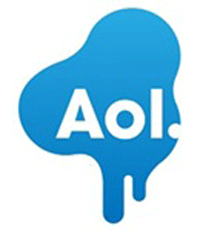The 5 Stories In Ad Tech You Might Have Missed This Week
by Ciaran O'Kane on 12th Aug 2011 in News


Project Devil Is A Success With Brands, But AOL's Poor Numbers Send Its Share Price Into Freefall
Bigger ad units. Brands love them - especially in context-rich environments. And they are prepared to pony up considerable amounts of money as well. Mike Shields over at DigiDayDailyEveryDay.com reckons the starting point for the big AOL ad units are starting at $67 CPM (€47/ £41) and have engagement rates four times higher than the industry average. AOL insiders say that the Devil project is getting serious traction with a number of brands running campaigns across owned and operated AOL sites. It could bode well for the future of its display business. The problem this week is that AOL delivered weak quarterly numbers and its stock got hammered. At one point it had dropped 30% on Tuesday. And by Thursday, the company was forced to buy-back $250 million dollars of stock to stabilise the price. But then it's been a fairly volatile and horrible week for everyone involved the equities market. Getting away from AOL's current problems, it is clear the company might be putting-in-place a strategy that everyone in the display industry recognises: scarcity, especially in sought-after contextual environments, drives prices upwards. Brands want bigger and more engaging ads - and clearly are prepared to pay for it. Maybe premium European publishers should be ripping out all those penny-CPM units, and be looking to Devil-like ads to drive revenue.
I Really Do Need A Data And Inventory Management Platform. Can You Build Me One?
I was highly sceptical of the DMP solution at first. Just because I have become a hardened cynic But having been brought through its potential to link offline and online data as well as leverage existing data to drive campaign performance I am slowly changing my cynical outlook. It would seem I am just in time too, as more DMP deals in Europe seem to be popping up all the time. This week we saw MPG ink a deal with AudienceScience to use its Gateway product to manage and build segments for agency-wide buys. Expect more of these announcements as the DMP space hots out. As well as AudienceScience, you now have Turn in the European market - with more to follow no doubt. On the sell-side, I am not seeing any real DMP solution. Surely publishers need a similar offering that links CRM/offline data with online data in order to target their own users with relevant advertising and products. Are we about to see a pivot? Perhaps this is an area the SSPs should be looking at - namely a holistic inventory and data management platform.
Where Is All The European Demand Going To Come From? Why Search Of Course?
Adexchanger did an interesting "One Question" piece with Marin Software's CEO Chris Lien around search marketers and display this week. I have heard lots about how search firms will never be able to trade in the display space over the past twelve months. It's much too complex for them. Right. Display buying is beyond their keyword and SEO expertise. Aha. Let's be clear about this. There is a lot of inventory out there on the exchanges but demand is still anaemic. Search money will be brought into this space in a big over the coming years. Agency desks are still ramping up. And outside Vivaki and Xaxis you will be hard pressed to find any in-house trading desk in Europe doing significant volumes. The likes of the re-targeters and ad networks are doing all the dynamic buying here. And that is a fact. But there is been a growing trend of search firms buying display through the automated channel. Granted most of this has been done mostly through third parties thus far - mostly DEMs and dynamic re-targeting specialists. But there are signs that the search market is looking to get involved. Many exchanges, SSPs and DSPs are actively targeting search firms, as they look to tap into new budgets. Search is going to be a sweet spot for the exchange marketplace going forward. They are learning. Creative might not be their strong point. You can always outsource that. And dealing with publishers when negotiating managed supply? Buy in the resource. This is a new and evolving space. But search firms can learn fast, and can bring new money into the display channel.
See, I Told The Publisher Trader Desk Was A Bloody Good Idea
It's amazing how Amazon's decision to build out its own ad targeting business got as little coverage as it did when it was announced in June. Those were the thoughts of OwnerIQ Jay Habeggeris in a recent post for AdAge on the new Amazon advertising offering. In the piece he argues that Amazon could well become a powerhouse in the ad business give the intent data it is sitting on. What I find amazing is that nobody in the industry has recognised that Amazon has built a super-charged publisher trading desk (PTD). Yes that's right - a PTD. Take one publisher sitting on a ridiculous amount of user intent data. Then add a DSP (in this case its new acquisition/partner, Triggit). Use said data to do audience extension across available dynamic inventory. Then build business unit around new proposition to target agency and client direct spend. Et voila, you have a fully functioning PTD. And yet no recognition. Typical. I will not take credit for Amazon's strategy - even though my idea does pre-date the launch. I would say it again to European publishers: why are you not doing this? Especially publishers like the FT. Niche publishers in Europe have the audience and, with the growing exchange eco-system, now have the scale. Build a business around it - and target new agency and advertising budget. Make some mad cash, as one SSP once famously said.
Groupon's Dodgy Numbers Suggests It Should Have Taken The Big G's Cash And Ran
Oh why didn't you take take Google's $5 billion dollars and run for the hills when you had the chance. That would be prevailing opinion of most sane people in this industry when they ruminate over the Groupon story in their quieter moments. With clones emerging by the day and the stock market looking like a s*** show by the day, Groupon's big IPO exit is looking less likely now. I have no interest in Groupon. I think its model is a small-margins business, and it will quickly be commoditised. The reason Groupon is so relevant for our space is that it has quickly becoming one the biggest display-buying advertiser in the European market. It is pumping serious money through affiliates and third party buyers - and a lot of money is finding its way into the automated channel. Will Groupon cross the IPO finishing line, and cash in? Most "analysts" are bullish - but some, like Noah Hagey, aren't so sure. You wonder if this will all end badly.
DisplayExchangeProgrammaticTrading








Follow ExchangeWire